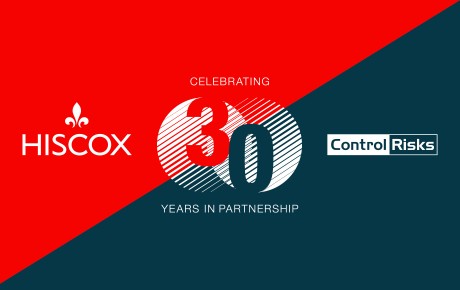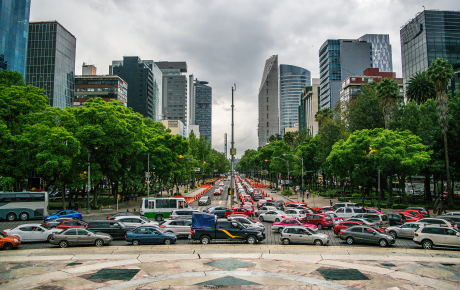
Lebanon is a challenge for the political violence market
The social shockwaves following the port explosion are a concern for political violence insurers.
The explosion that devastated swathes of Beirut also triggered profound political tremors throughout Lebanon. Despite the resignations of the country's entire cabinet in the wake of the blast, popular discontent at the political elite's corruption and mismanagement is swelling. Further – and more violent – protests are likely.
The 4 August blast razed neighbourhoods to the ground, killing at least 190, injuring thousands and leaving many more homeless. It summed up Lebanon’s long-standing political crisis. Tens of thousands of tons of highly explosive chemicals had been left in an unsafe port warehouse since 2013 – an accident waiting to happen.
The country was already in the grip of an economic meltdown, with debt at 170% of GDP, which has caused waves of protests since October.
The country was already in the grip of an economic meltdown, with debt at 170% of GDP, which has caused waves of protests since October. The UN estimates the poverty rate jumped to 55% in the country in May, from 28% last year. Since the blast, that figure is now bound to be higher, it says. Rampant inflation, which reached 112% in July, has caused acute hardship to almost all social groups. Austerity mixed with spiralling unemployment and the breakdown of basic institutional services have driven Lebanon to severe social unrest.
Last year, the situation had already become so volatile that Hiscox, which has had a thriving book of Lebanese political violence business for the past decade, decided to pull back from the country. The risks are simply too high. Many Lebanese companies also struggle to pay premiums on the international market; the Lebanese pound has lost 80% of its value and US dollars are difficult to come by.
Social shockwaves
The blast itself hasn’t had a direct impact on the political violence market, as it seems clear it was a tragic accident rather than a terrorist act. However, the social shockwaves it has created are cause for concern.
The explosion amplified popular simmering resentments against the government and the political elite. Protesters’ demands have become more strident, since many lost their homes and loved ones in the blast. They have also lost hope and they want justice. They are now calling for those responsible for the tragedy to face the death penalty and the president and other politicians are under mounting pressure.
Further violent protests will be fuelled by the widespread outrage at the government corruption and negligence that has ruined the economy and created the dysfunction that contributed to the deadly blast.
The bankrupt government can’t afford the reconstruction bill – Beirut officials say the damage from the blast could cost $15 billion and at least 25,000 homes are now uninhabitable.
The bankrupt government can’t afford the reconstruction bill – Beirut officials say the damage from the blast could cost $15 billion and at least 25,000 homes are now uninhabitable. International donors, led by France’s president Emmanuel Macron, are offering to help, but only if a technocratic government is appointed to tackle the country’s deep-rooted problems.
The pressure is on Mustafa Adib, a little-known diplomat who is Lebanon’s new prime minister-designate. “There is no time for talks and promises,” Adib told reporters. “It’s time to get to work.” But, his appointment kicked off a tortuous process of political horse-trading between the power blocs in Lebanon’s complex sectarian power sharing system. It can take months to form a cabinet, but Adib doesn’t have much time.
At the end of a trip to Lebanon in early September, Macron warned that if a new government failed to implement reforms within three months then international aid may be withheld, and politicians put under sanctions. In a snub to Lebanon’s old political elite, a senior US policymaker refused to meet them on a recent trip to Beirut, adding: “There is a need for a government that cares about its people and their demands, a responsible and transparent government that carries out economic and political reforms.”
Reform
The new government will continue to be hampered, however, by the country’s ‘confessional’ political system, by which parliamentary seats and ministerial positions are divided according to the country’s religious groups.
This means that reaching a consensus on key reform is often difficult, according to crisis management firm Control Risks, which pointed out that former prime minister Hassan Diab, who resigned in August after less than a year in office, attempted to create a partially technocratic government, and was unable to pass any reforms, including measures needed to secure an International Monetary Fund loan.
The new government will continue to be hampered, however, by the country’s ‘confessional’ political system, by which parliamentary seats and ministerial positions are divided according to the country’s religious groups.
For now, though, the risk of the battle-scarred country descending back into civil war is low. Control Risks sees a civil war is unlikely at this time – neither the public nor the government have the appetite for such an endeavour at the moment. Similarly, a war with Israel is unlikely at this time.
To compound its misery, Lebanon is also facing a surge of COVID-19 cases. The explosion may have inadvertently caused the spike in infections, as thousands of Beirutis crowded into hospitals for treatment or thronged the streets looking for missing relatives or venting their anger. It will also hamper efforts to fight a spiralling outbreak, as three of the city’s hospitals were destroyed in the blast. The government has imposed a partial lockdown, which has been largely ignored. It’s sad to say, but if you’re struggling to eat, a pandemic is relatively low on your list of priorities. It will only make people feel even angrier at the government’s ineffectiveness.
*****************************
This article was first published by the Insurance Day on 15th September 2020:



